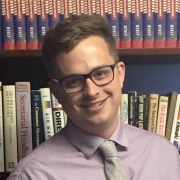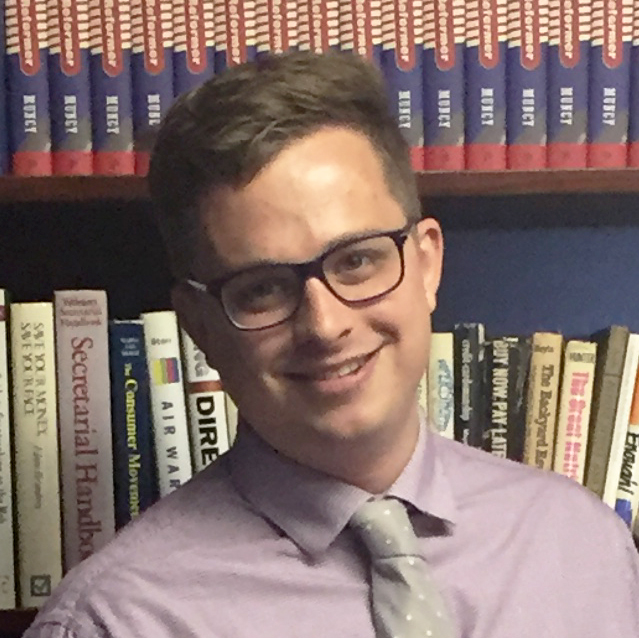Strategies to improve rural health care – National Consumers League
 By Stephanie Sperry, NCL health policy intern
By Stephanie Sperry, NCL health policy intern
“Just because we live in rural areas in this country, we shouldn’t have to settle for anything less than the best health care services” – Darrold Bertsch, CEO, Sakakawea Medical Center
The rural health care landscape in the United States is vastly different from the health care found in urban and suburban areas. On January 17, 2018, the Bipartisan Policy Center (BPC) and the Center for Outcomes Research and Education (CORE) held a briefing at which they released a report on the current state of rural health care in seven Upper Midwest states (Iowa, Minnesota, Montana, Nebraska, North Dakota, South Dakota, and Wyoming) and identified opportunities for improvement. The panel included Senator Heidi Heitkamp (D-ND); Senator Mike Rounds (R-SD); Keith Mueller, Ph.D., Interim Dean, University of Iowa College of Public Health and Director, RUPRI Center for Rural Health Policy Analysis; John Dunn, R.N., MPA, Director Physician Services, Nebraska Methodist Health System; Heidi Duncan, M.D., Physician Director of Health Policy, Billings Clinic; and Darrold Bertsch, CEO, Sakakawea Medical Center. The BPC/CORE report focused on four key areas: rightsizing health care services to fit community needs, creating rural funding mechanisms, building and supporting the primary care physician workforce, and expanding telemedicine services.
The Centers for Medicare and Medicaid Services (CMS) has implemented programs to monitor the quality of health care and drive its improvement. However, many of these programs are not tailored for rural areas, and in turn, rural facilities often lack resources to provide more advanced procedures. As Senator Rounds noted, people in rural areas end up overpaying for their health care – the quality of which would not be accepted in urban areas. Health care policies should not come in a “one size fits all” option, but should be tailored to fit the needs of the community. Senator Heitkamp argued that flexibility from CMS would allow health care professionals in rural areas to provide higher quality care, like incorporating care options for the elderly that wouldn’t require relocation.
Funding for rural health care (and health care as a whole) is a recurring challenge. The current passage of short-term continuing resolutions does little to provide financial stability for health care delivery, hospitals, and any organization in a contract with the federal government. According to Senator Rounds, the best course of action to address this issue will start with Congress passing a budget for more than three weeks at a time, to provide stability for organizations that depend on federal funding.
Rural areas face different types of challenges in health care delivery, with transportation and shortage of workforce personnel presenting major struggles. The distances that must be travelled to reach necessary health services in rural areas place an added burden on the rural population. Not only are people spending more time to travel, they spend more money making the trip. To address this issue, the BPC and CORE study suggests an expansion in the use of telemedicine services. Senators Heitkamp and Rounds praised the work of the Helmsley Trust in the areas of e-pharmacy and telemedicine. Telemedicine relies on high-speed broadband connectivity, the current state of which Senator Rounds criticized when he said “if you can watch your favorite college team on TV or on a computer, you ought to be able to also provide appropriate connections in emergency situations, between professionals and institutions with huge capabilities, to make contact with people in rural areas.” Senator Heitkamp uses Netflix as her benchmark for measuring successful broadband connectivity, believing that “there isn’t any millennial who is going to live in any community where they can’t stream Netflix. So, if you don’t have it, then we’re failing.”
Dwindling numbers of primary care physicians have placed an added strain on rural health care accessibility. BPC and CORE support the encouragement of completion of medical residencies in rural areas, thus paving the way for more practices to be established nearby. Because less than 8 percent of all physicians and surgeons choose to practice in rural settings, the hope is that increased exposure to rural communities during medical training will increase the number of physicians who choose to stay upon completion, as noted by Heidi Duncan, Physician Director of Health Policy at the Billings Clinic. Physician Assistants, guided by physicians via broadband connectivity, present another promising option – utilizing the expansion of telemedicine to provide the same essential services to rural communities that would otherwise be easily accessible in an urban setting.
As detailed in the BPC/CORE report, additional strategies to build a diverse and sustainable rural health workforce include distributing Graduate Medical Education (GME) positions to rural institutions and reauthorizing the Primary Care Residency Expansion and Area Health Education Center programs. Loan-forgiveness programs could also be expanded to include dental therapists and community paramedics.
In alignment with the strategies outlined by BPC and CORE, the National Consumers League is working with the Patient Access to Pharmacists’ Care Coalition (PAPCC) to build support for the Pharmacy and Medically Underserved Areas Enhancement Act (H.R. 592/S. 109), which would amend Medicare to increase medically underserved seniors’ access to health care through pharmacist-provided care. Since nearly 95 percent of the population lives within 5 miles of a pharmacy, improving access to pharmacists’ services can help to improve the care of our nation’s rural residents.



 Today, January 15, 2018, marks the 35th anniversary of national celebration of the life of Rev. Dr. Martin Luther King, Jr. As King’s widow Coretta Scott King observed, “This is not a black holiday; it is a people’s holiday,” She spoke these words after President Ronald Reagan signed the King Holiday Bill into law on Nov. 2, 1983.
Today, January 15, 2018, marks the 35th anniversary of national celebration of the life of Rev. Dr. Martin Luther King, Jr. As King’s widow Coretta Scott King observed, “This is not a black holiday; it is a people’s holiday,” She spoke these words after President Ronald Reagan signed the King Holiday Bill into law on Nov. 2, 1983.
 The scenario is all too familiar to thousands of District residents: while looking over a credit card bill, you notice a mysterious charge from a company or service you vaguely remember doing business with a year ago. Why do you keep getting charged for a cleaning service you only used once? If this sounds familiar, chances are that you are the unwitting victim of an automatic renewal clause.
The scenario is all too familiar to thousands of District residents: while looking over a credit card bill, you notice a mysterious charge from a company or service you vaguely remember doing business with a year ago. Why do you keep getting charged for a cleaning service you only used once? If this sounds familiar, chances are that you are the unwitting victim of an automatic renewal clause.










